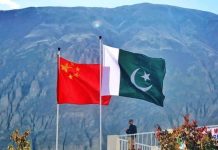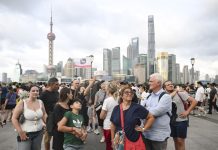Hangzhou: It was five years ago at a meeting of leaders of the world’s major economies, President Xi Jinping comprehensively expounded on China’s vision of global economic governance.
To leaders of the Group of 20 (G20) who gathered in the eastern Chinese city of Hangzhou in September 2016, Xi proposed that global economic governance should be based on equality, embrace openness, be driven by cooperation, be a mechanism of sharing, and the G20 should transform from a crisis response mechanism focusing on short-term policies to one of long-term governance that shapes medium- to long-term policies. The G20 is a grouping of major advanced economies and emerging markets, accounting for nearly 90 percent of the global economy.
Five years on, the legacy of the G20 Hangzhou summit shines on. Placing emphasis on development, the summit has brought tremendous benefits to the global community. Over the past five years, China’s vital role in promoting and improving global governance has been consistent.
In 2021, a time when the world is still reeling from the impact of the COVID-19 pandemic, Xi called on G20 members to enhance their preparedness and capacity for coping with major public health emergencies. “G20 members need to shoulder responsibilities in global cooperation against the virus,” Xi said at the Global Health Summit in May.
During the past five years, China’s economy has maintained healthy growth, all the while bringing more opportunities to the world.
The country has held a series of expos, continued to improve its business environment, expanded its efforts in developing pilot free trade zones, worked for the implementation of the Regional Comprehensive Economic Partnership, and kept a positive attitude toward joining the Comprehensive and Progressive Agreement for Trans-Pacific Partnership. – Agencies






